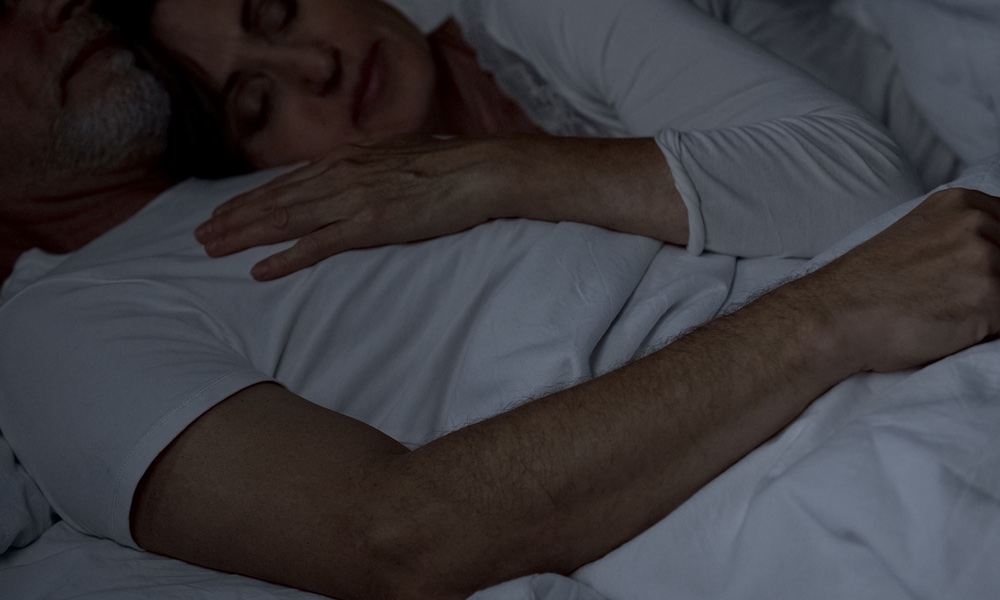 Editor's Note
Editor's NoteDanielle Ofri M.D. is an attending physician at Bellevue Hospital in New York City where her patients reflect the city's diversity. In Medicine in Translation, Journeys with My Patients, we have a chance to listen in on the office visits that fill her days, and follow the stories and medical journeys of some of Dr. Ofri's patients like Dawa Tenzin, a Tibetan activist on a life-threatening hunger strike before a chance encounter locates a Tibetan-speaking nurse to help him. Or Samuel Chuks Nwanko, a Nigerian man who was horribly disfigured by lye in an attack and is progressing through reconstructive surgery and heading back to school. And Julia Barquero, an inspiring Mexican woman who is in need of a heart transplant, but, as an illegal immigrant, isn't eligible to be put on a heart transplant list.
When Ofri and her family spend 18 months traveling in Latin American and living in Costa Rica, and she gives birth to her third child, she herself experiences what it is like to be a patient in a foreign land where you share little of the language and know little of the country's customs.
The following excerpt is the story of how New Zealander Jade Collier's life was altered by one dive. But, as the Medicine in Translation goes on to make clear, Jade uses this accident to launch a career helping others.
The water shimmered in the sunlight, casting diamondlike sparkles. The heat was brutal—hot enough for the leaves on the trees to wilt. Brookfield River rippled temptingly, and the other teenagers bobbed in and out with drenched excitement. It was December 6, a week before high-school graduation, a week before summer vacation. The verdant New Zealand landscape rolled for miles beyond the river, the green hazy in the languorous heat.
The old Collier dairy farm was an hour away – a lifetime away – in the village of Purtorino. Purtorino was considered a bigger village because it boasted a pub and two auto shops in addition to the standard village store. The village center sported exactly four houses – one for the family that owned the pub, one for the family that owned the store, and one for each family that owned an auto shop. There were three more houses near the school – and that was the extent of the downtown. The rest of the area was made up of thousand-acre farms spread out through the vast countryside. At three hundred acres, the Collier farm was smaller than most, but it seemed enormous to Jade, Judith, and their older sisters, Katy and Naomi. They grew up with the animals, helping to feed the calves, milking the young ones that weren’t ready for the mechanized milkers. After school, they climbed into the henhouse to feed the squawking chooks.
Life on the farm came to a screeching halt when Jade’s father died of liver cancer. At age thirteen, Jade and her twin sister were sent off to boarding school in Napier, a bustling city of forty-five thousand people. Their mother attempted to lease the farm, share the farm, rent parts of it, but none of these plans succeeded. After two years, she gave up, sold the farm, and joined the girls in Napier. She pulled the girls out of boarding school, and they started life again together as a family, but absent a father.
In retrospect, Jade could identify these upheavals as the source of her teenage anger — an anger that was unfocused, unresolved, and unremitting. Her mother wasn’t the type of person who aired or analyzed difficult emotions. Her marriage had been an unhappy, uncommunicative one — its dissolution by death a disagreeable mix of grief, guilt, and relief. She tended to sulk, and in that vacuum the Collier girls ran wild.
In Napier, Jade and Judith hooked up with the Hawke’s Bay Hippies. Though there was plenty of partying, smoking, beer drinking, hitchhiking, and cutting out of school and church, it was still relatively tame. Hard drugs hadn’t yet made an appearance in small-town New Zealand of the 1970s. Rebellion was in the form of miniskirts and sneaking out of Bible study. The teenagers dressed and acted like hippies—sporting peace signs and beads — even though no one had ever so much as laid eyes on an actual hippie. Both Judith and Jade had been accepted into nursing school, following in Katy’s footsteps. While the twins were evading Bible study and loitering at Brookfield River on that Sunday, Katy was on duty at the Napier hospital.
And then she heard a soft ping. That was it, just a soft, low-pitched ping.
A humming rose in her ears and Jade found herself in a V position under the water, facing downward. She pulled herself up, or at least did what she thought was pulling herself up, but all that resulted from her efforts was a faint waggling of her hands. She jerked her body upward more forcefully, or at least that’s what her mind commanded. But nothing happened. It was then that Jade realized that she couldn’t move, that she was trapped underwater, paralyzed.
She was fully conscious, and remained oddly calm. Her only thought was a very rational I do hope somebody gets me out soon. She knew she had to hold her breath, but having spent the last few years competing with her sisters as to who could stay underwater the longest, she had faith in her lungs. Her body remained frozen underwater while she held her breath, counting slowly. The other swimmers kept on swimming; the Hawke’s Bay Hippies noticed nothing amiss.
It is often said that there is a certain extrasensory connection between twins. Judith, who was on the shore, knew right away that something was wrong. She began screaming, the type of bone-shattering scream that commands immediate attention. Her words were choked but her friends followed her frenzied gestures toward the river. Three teenagers plunged into the waist-deep water and hauled her twin sister out. It had been about two minutes.
The Vauxhall was immediately pulled over by the cops for speeding. Urgent, agitated voices heaped one on top of another, competing to describe the accident. Somehow through the verbal cacophony they managed to convey the medical urgency. The police turned on their siren and led the way, speeding down the road to the hospital.
In the emergency room that day, Katy Collier was the admitting nurse. By constitution, Katy was a coolheaded person. Nothing rattled her, and when her little sister was extracted from the carful of panting teenagers, she retained her professional demeanor. It was this preternatural composure that kept Jade from panicking. If Katy is calm, she thought as she was being loaded onto a stretcher, everything will be all right. Her only panic arose when another nurse pulled out a scissor and began slicing open her clothing. "No," Jade screamed. She would not let them cut her precious peace shirt. "No," she screamed again, and began fighting off the nurse. But her body remained immobile. There was no fighting that could be done.
No one ever said, "You’re never going to walk again" – or if some – one did, Jade blocked it out. Katy seemed to believe that Jade would heal, and if Katy believed it, then Jade did too. Shortly after the accident, Jade was transferred from North Island to South Island – the other half of New Zealand – where the hospital had a specialized rehab unit for spinal injury.
In the first few weeks at the rehab, Jade was flat on her back, unable to do anything. Therapists rotated and manipulated her limbs to maintain flexibility, but it was as though they were merely pantomiming in the air. All of her body felt removed, distant, almost nonexistent. While lying flat, Jade spent hours visualizing how she would walk out of the plane, triumphantly returning home to North Island. She chose and discarded endless combinations of clothes, determined to pick the exact right outfit for a walking debut. In the end she settled on brown suede boots, a suede jacket with fringes, and a matching purse – also brown suede, also fringed. Though she was fully aware that her legs did not work, somehow that didn’t translate to her not ever walking again. She assumed that she’d be walking within a year.
Christmas Day came three weeks after the accident. Jade had never been alone on Christmas, and now she was far from her family, isolated in a strange place, in a strange life. The hospital cooked a version of Christmas dinner, but it was a sad imitation. It was cold when it arrived at her bedside — the ham limp, the mashed potatoes congealed, the stuffing dry. And then someone had to spoon it to into her mouth, bit by flavorless bit.
The spinal-injury ward housed fifteen patients; Jade was the youngest, and the only girl. The others, in their twenties, were far more worldly. They coached Jade as she began the grueling process of regaining strength in her lax limbs. Each muscle had to be coaxed painfully and arduously, seemingly one fiber at a time. Slowly, her fingers began to respond, then her hands – holding a book so that she could read became her most fervent goal. Although one might expect a ward full of young people with severed spinal cords to be a dreary place, in fact, the ward had a summer-camp atmosphere – teenagers on their own, no parents, only young nurses as their "counselors." The nurses frequently took patients on trips, often to movies, parties. With the help of able-bodied visitors, water balloons could be lobbed over the balconies, pillows could be brandished like shields, and generalized mayhem could be engendered.
By the end of the five months, Jade’s arms allowed her to propel herself a few feet in a manual wheelchair. The time had come to return home to North Island, but she would not be stepping out of a plane in her brown suede, fringed hippie outfit. She would be in a wheelchair, and before she could return to her home, she first had to transfer back to the Napier hospital for several days.
The summer camp was over, and Jade was plunged into an atmosphere that lacked any of the sensitivity of the spinal-cord-injury unit. An aide wheeled Jade to the shower one day and was not attentive to the dimensions of the chair, plowing into an elderly woman in the hallway. The woman threw Jade a how-dare-you look, then walked away, shaking her head in disgust before Jade could even explain.
Two days later Jade was wheeled in a commode chair, but the aide had neglected to attach the crucial bottom tray. Jade had limited bladder and bowel control and was mortified to discover that she was leaving a trail down the hall, just like the horses in Purtorino.
She was finally discharged from the local hospital, five months after cutting out of Bible class on that sunny afternoon. Jade was home, but not ready for the logistics of the real world. Though she wasn’t technically incontinent, she had less than a minute’s grace period after the realization that she had to go. This simply would not do for a social outing, so she declined every invitation, inventing various and sundry excuses. This, along with her mother’s over-protectiveness, served to keep her cloistered for the better part of a year. It was also the year that the reality of the permanence of her paralysis set in. She’d still been holding on to the hope that her spine might heal and that she would be able to walk. But facing the four walls of her house, day in and day out, gradually extinguished that hope.
Jade’s restive teenage anger surfaced, and she decided that she had to take her life in her own hands. Armed with a portable loo and the resolve that she’d tell people that they’d simply have to avert their eyes during this momentary emergency, she took a part-time job in an office. This led to a full-time job and finally to a car that gave her the freedom to act out just like she used to do.
Jade returned to partying, drinking, smoking. She leapfrogged through serial short-term boyfriends, always being the first to break it off. And then one day, as Jade recalled it, "God spoke to me." It was a low but audible voice in her head, and it told her that she needed to move to Australia. Jade hadn’t been that active with the church, but she had no doubt that it was the voice of God, and that if she didn’t listen, she’d regret it.
She pulled out a map of Australia and selected Brisbane, a city on the southeast coast known for its mild winters. If she was going to strike out on her own, risk everything she had, she might as well do it in pleasant weather.
With little more than the address of a halfway house for the disabled, Jade flew herself to Brisbane and talked her way into a room. Her next stop was the local pub. Networking was easy over a few pints, and she quickly made friends and found herself an office job. For more than a decade, she relished the bustling life of this city that was bisected by the snaking Brisbane River. She had several serious boyfriends, relationships that now lasted years rather than weeks. It was with Jordon that she first contemplated marriage. They planned to move to Africa together, to stake out an even more adventurous life. She didn’t know how wheelchair-amenable the jungles of Africa might be, but she was willing to take her chances. If something wasn’t accessible, she’d figure out a way to make it so.
Just before the Africa trip, she paid a visit to Katy, who was now living in Brooklyn, New York, and God spoke to her for the second time, again with regard to travel plans. This time it was a stern warning – not to go to Africa. The words were plain and clear, and again, she felt compelled to listen, even though the consequences this time were much steeper. Forcing her mind to overcome her heart, she broke off with Jordan and said good-bye to her dreams of the African wilderness. Brooklyn wasn’t quite as exotic as Africa, but it was its own sort of jungle, one she’s been navigating ever since.




